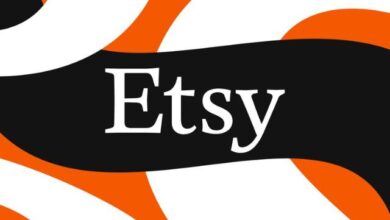Tips for Recruiters to Hire People with Disabilities

Did you know that disabled workers are the most committed employees in the workplace?
Employees who feel involved in their workplace are more likely than others to exhibit higher levels of productivity, enthusiasm, and loyalty to the company. As a result, recruiters must understand that it is not only about recruiting people with disabilities but also about diversity management.
In this article, we will discuss why recruiters must up their game and the interest and recruitment process as a part of disability employment services. Continue reading to learn 5 such suggestions for disability inclusion.
5 Recruiting Tips for Creating a Disability-Inclusive Workforce
Companies and businesses that include people with disabilities benefit from a larger talent pool, skills, and innovative problem-solving solutions. Here are 5 tips to make your workplace more diverse.
1. Ensure that the company has the necessary infrastructure
First, assess the company’s situation. To hire people with disabilities, ensure that the company has the necessary infrastructure and accommodations. Do you have access to a wheelchair? Is there parking available? If not, you must be prepared to make some changes to assist them in settling in.
It may be necessary to relocate their workstation, provide flexible working hours, or even upgrade your employee handbook. Once a recruiter employs someone with an impairment for your company, existing employees must treat them with the same respect and dignity as their coworkers.
To put it simply, no one should face discrimination. Recruiters should ensure that adequate training is provided and that the necessary infrastructure changes are implemented to make their jobs easier.
2. Collaborate with community-based organisations or non-governmental organisations (NGOs)
If you, as a recruiter, lack the necessary knowledge or training to hire people with disabilities, seek assistance from an outside organisation. Collaboration with community-based organisations can confirm that your entire company is trained on disability-inclusive laws and that there are weekly disability-awareness interactions.
Recruitment agencies can also partner with community-based organisations to assist them in hiring the differently-abled. It is also important to note that recruiters receive proper training on engaging with candidates with special needs over time.
3. Choose an appropriate language
When attempting to recruit and hire people with disabilities, use appropriate language. Always speak inclusively. One of the most important lessons in diversity management is how to interact with diverse group members. For instance, keep this in mind while drafting a job description:
a. While the term impairment may be appropriate in legal contexts, it should never be used in a job description. People with disabilities are not damaged; they are simply different.
b. Mention in your job advertisements that the position is open for all, including those with impairments. If a position can be performed freely by people with cognitive or intellectual disabilities, mention it.
c. Never write ‘a disabled person’. Someone has a disability. It is not something that defines him/her. As a result, always use the phrase “people with disabilities.”
d. Where legal nomenclature is not required, employers must use the term improvements or adjustments commonly made in a company to assist them and make them feel included.
4. Modify the application process
Is the company application readily accessible to them? If a business uses an automated portal to accept applications from applicants, then individuals with disabilities should also be able to access it. However, you may need to make a few adjustments here and there. For example, if a candidate is blind, they can hear the application aloud.
Information should be presented in clear, simple language and website navigation so they can understand it.
By incorporating such accessible practices, you are creating a good user experience as a company. It is important to remember that changing the application process benefits everyone, not just candidates with disabilities.
5. Conduct unbiased interviews with people with disabilities
All job candidates should be treated with dignity and equality, answering the same questions to help determine the best fit for the job. Individuals with disabilities, like any other candidate, will always want to be treated fairly.
As a recruiter, avoid asking the person questions about their disability. To ensure that such candidates have equal job opportunities during the interview, provide that:
a. Employment offices and interview locations are accessible to people with disabilities.
b. The emphasis is on the candidates’ qualifications, not their disabilities, and no questions about them are asked.
c. You ask the same job-related questions as any other candidate, such as, “How would you perform this task?” or why do you believe you are the best fit for this position?
Aside from raising awareness, supporting employment for people with disabilities will allow you to tap into an underutilised talent pool. As a diverse and inclusive recruiter, ensure that companies define what disabilities mean to them personally and professionally. Expand your recruitment structure to accommodate these talented candidates.





